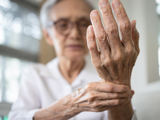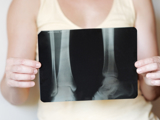Health Conditions
Giving people access to reliable science-based information about diet and health issues.
We aim to give people access to reliable science-based information to support anyone with a health condition on their journey towards a healthier diet.
Sara Stanner, Science Director, British Nutrition Foundation






